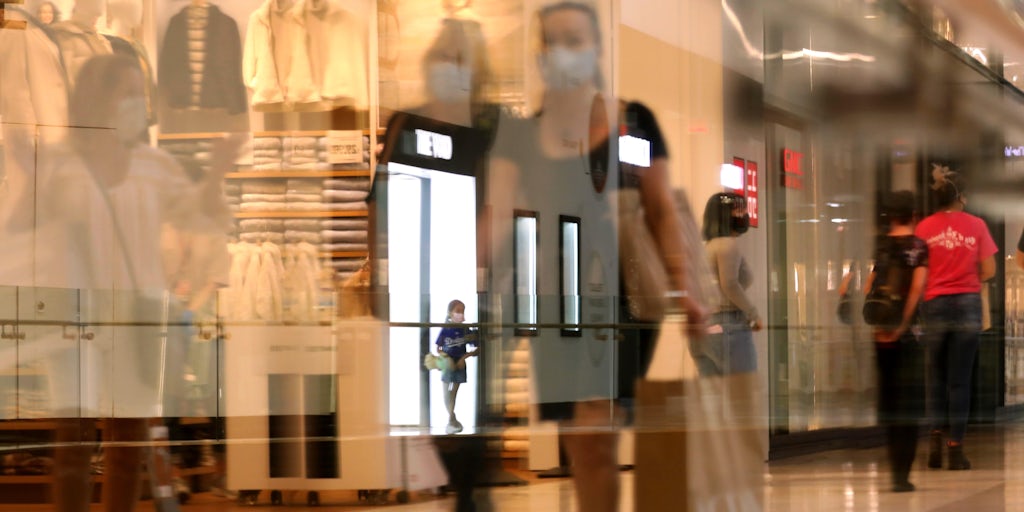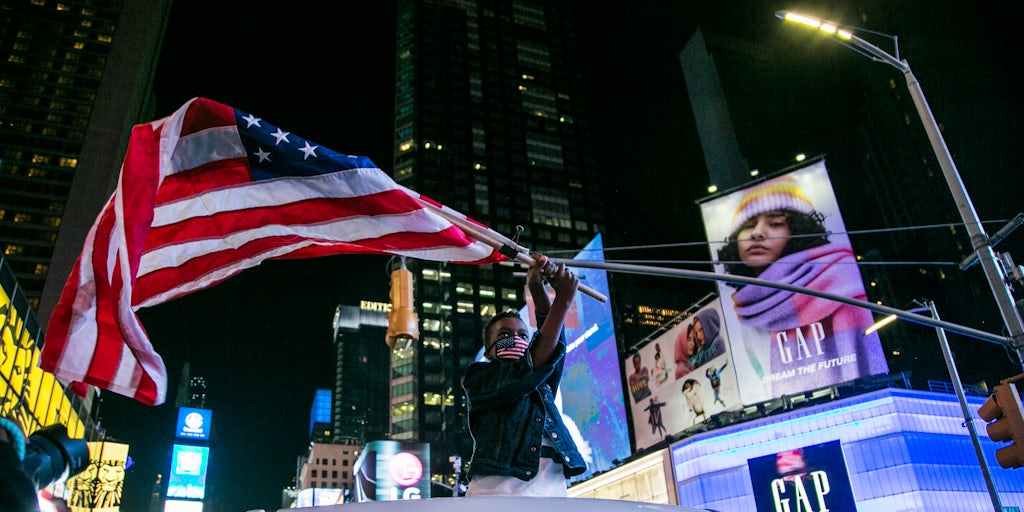Why Fashion’s Most Vulnerable Companies Have the Most to Gain From a Vaccine | News & Analysis, BoF Professional
NEW YORK, United States — Shares of long-suffering fashion and retail stocks soared on Monday, after Pfizer’s announcement that its coronavirus vaccine had proved 90 percent effective raised the prospect of a quicker-than-expected end to the pandemic.
The S&P 500 index hit near-record highs, jumping nearly 1.2 percent Monday. Among the biggest winners were some of America’s hardest-hit businesses: Nordstrom, Macy’s and other department stores saw gains of 15 percent or more. Shares of Ulta Beauty, which has struggled with sagging demand for makeup in the age of face masks and Zoom calls, were also up 15 percent. Ralph Lauren and other brands specialising in office wear and fashion, saw big swings higher as well.
These retailers and others in the fashion and beauty space saw their sales eviscerated when lockdowns forced them to close their stores this spring. Customers haven’t returned in the same numbers since those restrictions were lifted, and a second wave of Covid-19 cases is likely to weigh on consumer spending. Many were bracing for another year or more of depressed sales and intermittent closures.
Pfizer’s announcement potentially changes that grim timetable. The pharmaceutical giant said it could have 50 million doses, enough for 25 million people by the end of the year, and 1.3 billion doses next year.
Until now, “[fashion] stocks haven’t recovered as much as a lot of other sectors, like tech or at-home retail,” said Susan Anderson, an analyst at B. Riley FBR. “Now we’re seeing the whole sector up because they were just so impacted by the shutdown.”
Retailers that are more fashion-oriented saw the greatest hikes on Monday because a vaccine signals an end to the work-from-home way of dressing, according to Anderson. “This means consumers are going to get back to more fashion apparel for when they go out, or work apparel,” she said.
The industry’s stock recovery should be nonetheless met with a grain of salt, experts warn: Even with a vaccine, shoppers are unlikely to return to their old habits overnight — or perhaps ever. E-commerce will continue to grow its share of total sales, and retailers that haven’t found their customers online could continue to struggle in the post-pandemic world.
Monday’s rally came on the heels of Joe Biden’s victory in the presidential election last week, ending weeks of uncertainty that plagued the stock market. The president-elect has already outlined his plan of action for when he takes office in two months, including a 13-member Coronavirus task force. Analysts predict that Biden is likely to roll back Trump-era tariffs on foreign goods, potentially including clothing made in China.
Election clarity is a positive, vaccine clarity is a game changer.
Still, it’s the promise of a vaccine that’s ultimately driving the recovery in retail stocks Monday. Uncertainty – whether about the pandemic, the economy, the election or all three – makes consumers less confident about their future income, and therefore less willing to buy non-essential items like clothes. The events of the last week should improve their moods considerably, analysts say.
“Election clarity is a positive, vaccine clarity is a game-changer,” said Simeon Siegel, analyst at BMO Capital Markets.
But many of the upticks Monday will be short-lived, he added. After all, department stores were struggling well before Covid-19 emerged.
“Today may be a sigh of relief… but I don’t think anyone will look at the vaccine and say that the structural issues of department stores are going away,” he said.
Across the board, department stores and their vendors posted significant increases in stock value Monday. Macy’s stock recovered 22 percent in the morning, while Calvin Klein owner PVH Corp. jumped nearly 18 percent in the same time frame. These movements, however, hardly signal a comeback in the brick-and-mortar multi-brand channel.
“We’re already seeing consumers shift away from the [department store] channel and choose to shop in more direct ways,” Anderson said. “Obviously it’s better for department stores when the economy is open, but what will happen [long-term] is up in the air.”
Some of Monday’s gains were also fuelled by investors exiting short positions, the bets they had made that stocks would fall. Nordstrom, for instance, carried considerable interest from short sellers, said William Blair analyst Dylan Carden.
“We need to see when the dust settles, which [stocks] people want to own versus which ones were bidded against in shorts trades,” Siegel said.
Retail stocks that had held up relatively well during the pandemic saw milder gains on Monday. Nike, which excelled this spring and summer as quarantined consumers flocked to buy workout gear and sweats, saw its stock rise only about 4.8 percent at opening bell and gains were almost entirely erased by the end of the day. That compares with Ralph Lauren’s 20 percent boost since Friday and Steve Madden’s 13 percent. Lululemon, meanwhile, saw its stock rise 2 percent Monday morning and drop 4.5 percent during the day.
“These are companies perceived to be beneficiaries of people being forced to stay at home, so it makes sense that their stocks are in question,” Siegel said. But just like how Nordstrom’s rise will be temporary, Lululemon doesn’t have to worry about leggings sales just because a vaccine is on the horizon, he added.
Tech stocks like Facebook and e-commerce platform operator Shopify, meanwhile, were down 5 percent and 13.5 percent at closing bell.
Related Articles:
The US Election: What’s at Stake for Fashion?



